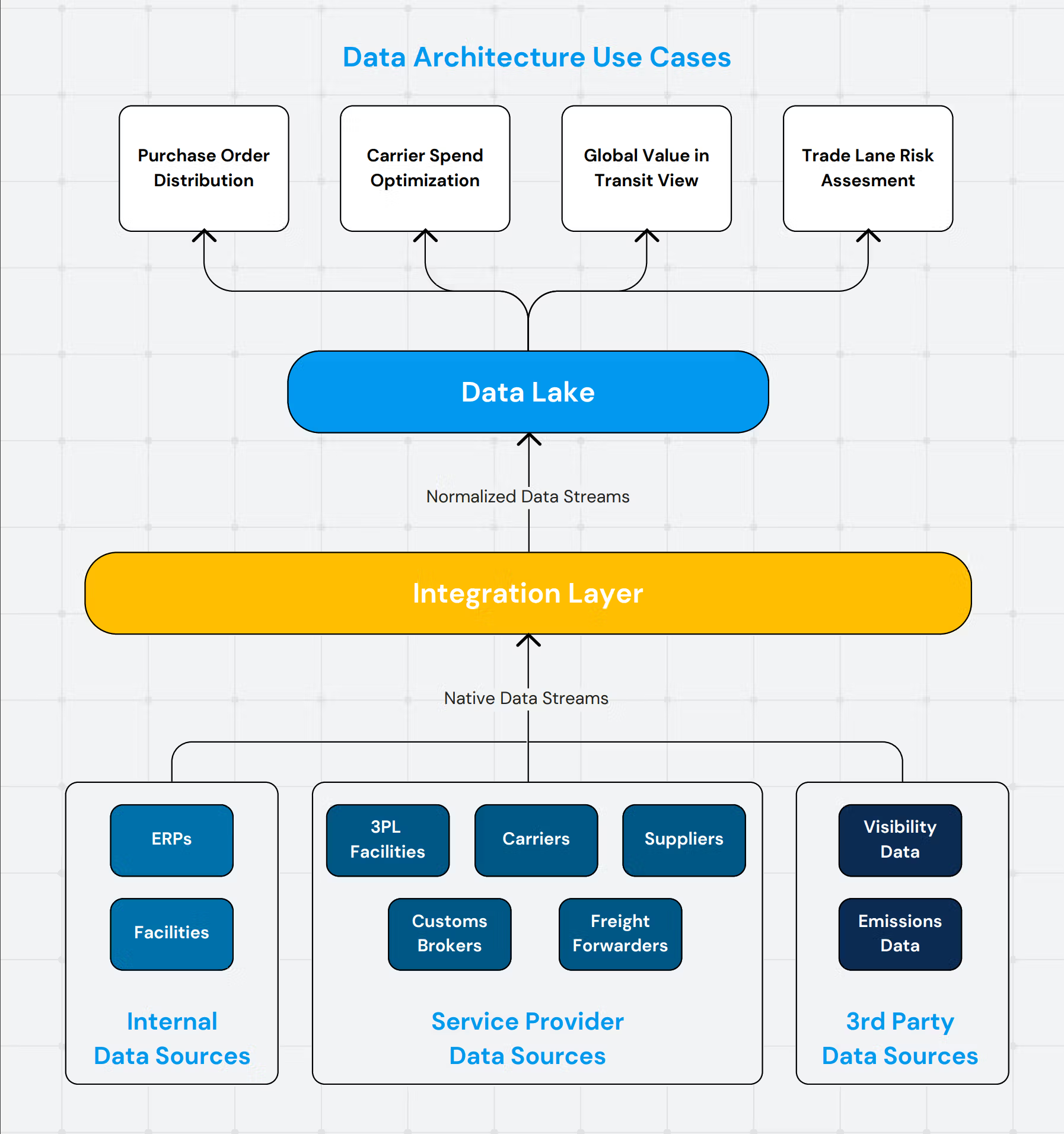With a strong data architecture in place, your team can address some of the challenges that affect your operations and customer experience.

From streamlining purchase order distribution or optimizing carrier spend to assessing trade lane risk or getting better visibility into your supplier managed freight, the right data architecture empowers your team to take control of your data to stay competitive, operate efficiently, respond to changes faster, and reduce your supply chain risk.
To streamline your data and get started with digital transformation, don’t reinvent the wheel. You should start by adopting a proven reference architecture so you can operate more efficiently from the first-mile to the last and use your data to drive measurable improvements across your supply chain. A strong data architecture should be scalable and flexible enough to adapt to the complexity of today’s supply chain landscape.
In this eBook we'll share:
- Common data architecture use cases to address supply chain and business challenges your team faces today
- Going one step further with supply chain data orchestration
- All of the elements of a strong data architecture, from the data sources to data consumption layers
- The crucial element that enables your team to start digital transformation and data orchestration projects
- Next steps once your data architecture is built and how to get started with digital transformation
